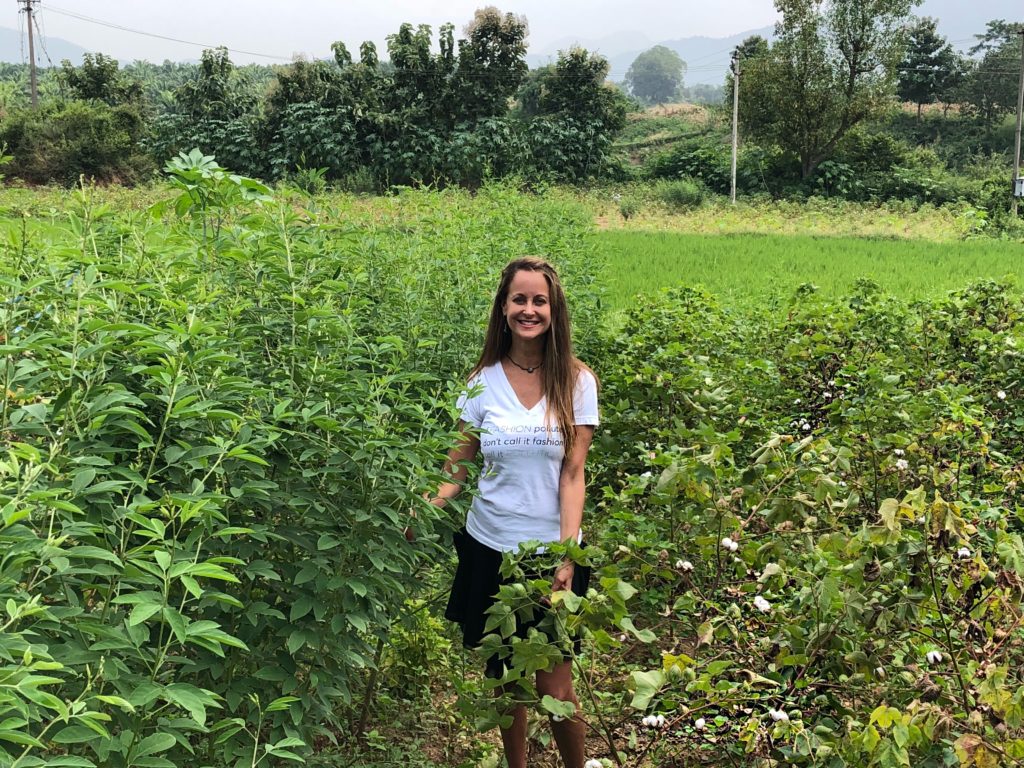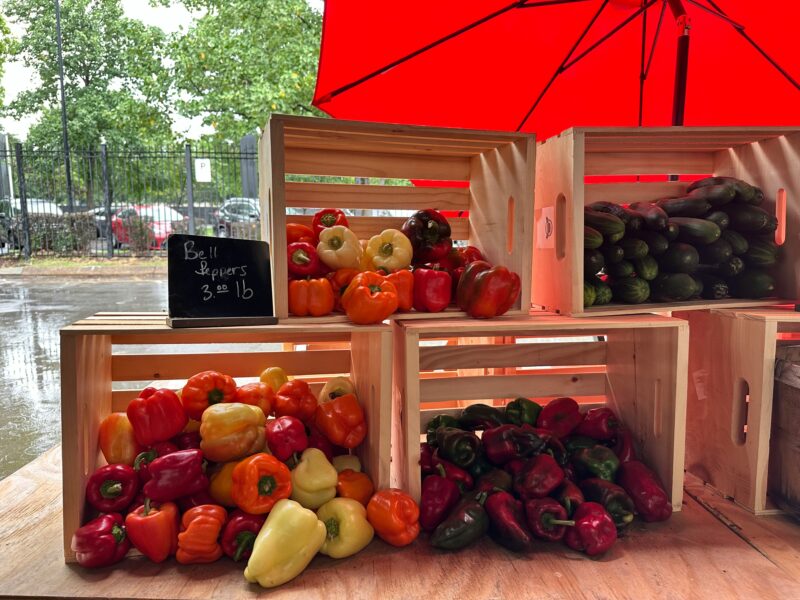Only Organic has started a new Q&A series highlighting Organic Pioneers throughout the industry. In our efforts to bring more attention to organic textiles this week we are interviewing organic pioneer, Marci Zaroff.

Name: Marci Zaroff
Company Name: ECOfashion Corp
Location: New York
1) Why did you choose to create a certified organic product?
In 1990, I co-founded a wellness school and “health coach” certification program, known today as The Institute for Integrative Nutrition. From our inception, we were teaching people how to eat and live a more organic lifestyle. I recognized that we had to connect the dots from agriculture to popular culture and that you couldn’t support organic food without fiber, as 60% of a cotton plant goes back into the food stream. In 1995, I coined and trademarked the term “ECOfashion” and founded the nation’s first organic apparel and home lifestyle brand, Under the Canopy, to demonstrate that style, quality and price are not mutually exclusive with social and environmental responsibility. It’s all about the 5 P’s: people, planet, profit, passion, and purpose.
2) How long has your brand been certified organic?
While I’ve spent 30 years as a serial entrepreneur, advocate, educator, and pioneer of organic products, I founded my latest venture, ECOfashion Corp, in 2019. Organic is in the founding DNA of our “GreenHouse of Brands” our brands, which includes MetaWear, Farm to Home, Seed to Style, and YES AND
3) Is it difficult to source certified organic ingredients?
My business mantra has always been “source to story,” so I have been instrumental in building global organic cotton supply chains for several decades. Because our apparel and home fashions are certified to the Global Organic Textile Standard (GOTS), we are able to work transparently and efficiently from farm to finished product. Yes, sourcing and producing organic textiles can be quite complicated, which is why I founded MetaWear, as a B2B turnkey manufacturer and solution provider—to make sourcing organic apparel or home products “easy” for other companies, as well as for our own house brands.
4) What myth would you like to bust about being an organic food pioneer or the organic industry as a whole?
The three biggest stigmas of organic food and fiber are that: 1) you have to give up what you want (in food, that’s taste; in fashion, it’s style and quality); 2) it will cost significantly more for organic; 3) there is no way to know if it’s really organic.
With a focus on “no compromise,” we bust these stigmas (as I speak to in my book “ECOrenaissance: Co-Creating a Stylish, Sexy and Sustainable World”) by 1) leading with great design and quality; 2) sourcing from farm to shelf to cut out inefficiencies in the supply chain in order to be competitively priced while adding value; 3) assuring authenticity and traceability via certifications like NOP and GOTS, which are overseen by third-party accredited certifiers who audit the productions from field to final product.
5) What is the biggest challenge you face as an organic pioneer?
Historically, the two main challenges I have faced are the lack of information and knowledge of both retailers and consumers about organic (so education is KEY); and navigating the higher costs in the early stages of development, especially when volumes are low, to be competitive with the conventional landscape. But with 83% of Americans now buying organic products at least occasionally (thanks to the Millennial generation and the work of organizations such as Rodale institute, and campaigns like “Organic Voices”), organic has now penetrated the mainstream. Demand for organic is growing consistently across categories—driving outreach, awareness, and accessibility.
6) Where do you see organic food, farming, and products in the next 5 years?
I believe organic will be the norm, as it is no longer about staying ahead, but not being left behind. Those companies who are not thinking about health and wellness, and/or supply chain accountability, will likely not be relevant in the eyes and minds of the growing movement of conscious consumers.
7) What advice would you give to a younger generation of entrepreneurs looking to get into the organic industry?
Set a vision, then do your research, and ask lots of questions. Join the Organic Trade Association or another organization or community that you can leverage for support, mentorship, and access to resources. Join an accelerator. Collaborate with industry experts who can help with R&D, sourcing, production, business planning, marketing, sales, etc. Follow your heart; think out of the box; buckle up and see every challenge as an opportunity to pivot to get smarter, stronger, and better.
Visit Marci Zaroff Online
Visit EcoFashion Corp
Yes And
Farm To Home
Metawear
Beyond Brand









